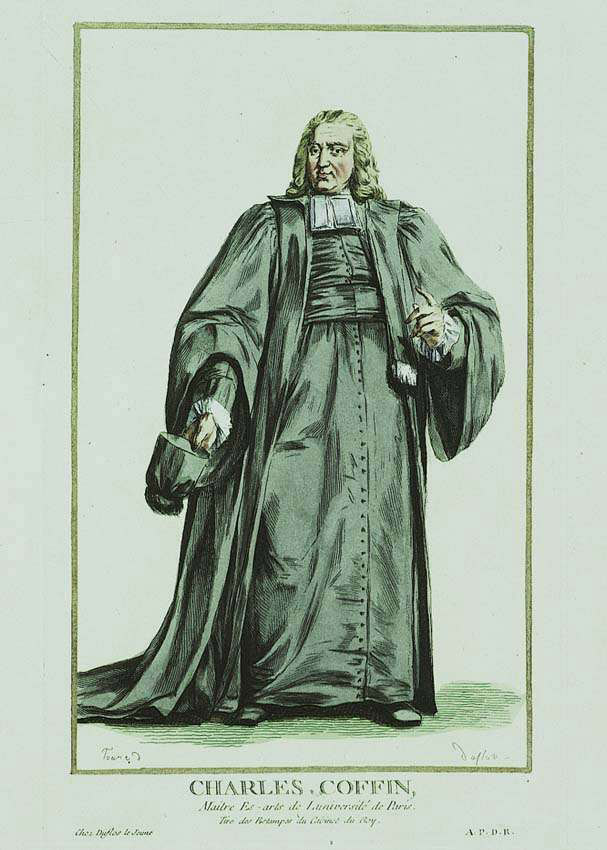|
Charles Coffin (other)
Charles Coffin may refer to: *Charles Coffin (writer) (1676–1749), French writer, educator and Jansenist * Charles A. Coffin (1844–1926), first President of General Electric corporation *Charles Carleton Coffin (1823–1896), author of several historic manuscripts *Charles D. Coffin (1805–1880), U.S. Representative from Ohio *Charles Edward Coffin Charles Edward Coffin (July 18, 1841 – May 24, 1912), was an American industrialist and Republican politician who moved to Maryland during the American Civil War to operate ironworks near the national capital, and later served in both hou ... (1841–1912), U.S. Congressman from Maryland * Charles L. Coffin, American inventor of arc welding process {{DEFAULTSORT:Coffin, Charles ... [...More Info...] [...Related Items...] OR: [Wikipedia] [Google] [Baidu] |
Charles Coffin (writer)
Charles Coffin (pron. sharl co-fenh; 4 October 1676 Buzancy, now in the department of Ardennes - 20 June 1749 Paris) was a French teacher, writer and Jansenist who was Rector of the University of Paris. Among his writings are a number of hymns which have been translated into English. Life Charles Coffin was born 4 October 1676 at Buzancy, Ardennes in the Duchy of Rheim and educated at College du Plessis. In 1701, he was appointed chief assistant to Charles Rollin, principal of the Collège de Beauvais. He succeeded Rollin as principal in 1712. That same year he was entrusted with the funeral oration for Louis, Duke of Burgundy, the father of Louis XV. In 1718. he became rector of the University of Paris, a post which he held until his death. Hymns Coffin published in 1727 some of his Latin poems, for which he was already noted, and in 1736 the bulk of his hymns appeared in the Paris Breviary of that year, an edition of which was published in 1838 at Oxford by John Henry Newman. 1 ... [...More Info...] [...Related Items...] OR: [Wikipedia] [Google] [Baidu] |
Charles A
Charles is a masculine given name predominantly found in English and French speaking countries. It is from the French form ''Charles'' of the Proto-Germanic name (in runic alphabet) or ''*karilaz'' (in Latin alphabet), whose meaning was "free man". The Old English descendant of this word was '' Ċearl'' or ''Ċeorl'', as the name of King Cearl of Mercia, that disappeared after the Norman conquest of England. The name was notably borne by Charlemagne (Charles the Great), and was at the time Latinized as ''Karolus'' (as in ''Vita Karoli Magni''), later also as '' Carolus''. Some Germanic languages, for example Dutch and German, have retained the word in two separate senses. In the particular case of Dutch, ''Karel'' refers to the given name, whereas the noun ''kerel'' means "a bloke, fellow, man". Etymology The name's etymology is a Common Germanic noun ''*karilaz'' meaning "free man", which survives in English as churl (< Old English ''ċeorl''), which developed its depr ... [...More Info...] [...Related Items...] OR: [Wikipedia] [Google] [Baidu] |
Charles Carleton Coffin
Charles Carleton Coffin (July 26, 1823 – March 2, 1896) was an American journalist, war correspondent, author and politician. Coffin was one of the best-known newspaper correspondents of the American Civil War. He has been called "the Ernie Pyle of his era," and a biographer, W.E. Griffis, referred to him as "a soldier of the pen and knight of the truth." Life A descendant of Tristram Coffin who arrived in the American colonies from England in 1642, Charles Carlton Coffin was born in Boscawen, New Hampshire, on July 26, 1823. Growing up in rural New Hampshire, he was home-schooled by his parents and briefly attended Pembroke Academy and Boscawen Academy. Village life revolved around the church, and in his teens Charles went to work in a lumbering operation and with $60 from his earnings, he purchased an organ which he gave to the church, and became the first organist. During an illness in 1841–42, he had purchased a book about surveying which had a profound impres ... [...More Info...] [...Related Items...] OR: [Wikipedia] [Google] [Baidu] |
Charles D
Charles is a masculine given name predominantly found in English and French speaking countries. It is from the French form ''Charles'' of the Proto-Germanic name (in runic alphabet) or ''*karilaz'' (in Latin alphabet), whose meaning was "free man". The Old English descendant of this word was '' Ċearl'' or ''Ċeorl'', as the name of King Cearl of Mercia, that disappeared after the Norman conquest of England. The name was notably borne by Charlemagne (Charles the Great), and was at the time Latinized as ''Karolus'' (as in ''Vita Karoli Magni''), later also as '' Carolus''. Some Germanic languages, for example Dutch and German, have retained the word in two separate senses. In the particular case of Dutch, ''Karel'' refers to the given name, whereas the noun ''kerel'' means "a bloke, fellow, man". Etymology The name's etymology is a Common Germanic noun ''*karilaz'' meaning "free man", which survives in English as churl (< Old English ''ċeorl''), which developed its de ... [...More Info...] [...Related Items...] OR: [Wikipedia] [Google] [Baidu] |
Charles Edward Coffin
Charles Edward Coffin (July 18, 1841 – May 24, 1912), was an American industrialist and Republican politician who moved to Maryland during the American Civil War to operate ironworks near the national capital, and later served in both houses of the Maryland legislature as well as the United States House of Representatives. Early life and education Charles Edward Coffin was born in Boston, Massachusetts, descended from numerous long-settled elite New England families. He attended the Boston grammar and high schools. Career In 1863, during the American Civil War, federal authorities hired Coffin to run local ironworks in Muirkirk, Prince George's County, Maryland as well as ensure they did not fall into Confederate hands. The Muirkirk Foundry Company manufactured pig iron and later upgraded to blast furnaces. Despite his legislative service described below, Coffin served as its president until his death. After the war many of its laborers were freedmen, who founded an in ... [...More Info...] [...Related Items...] OR: [Wikipedia] [Google] [Baidu] |
